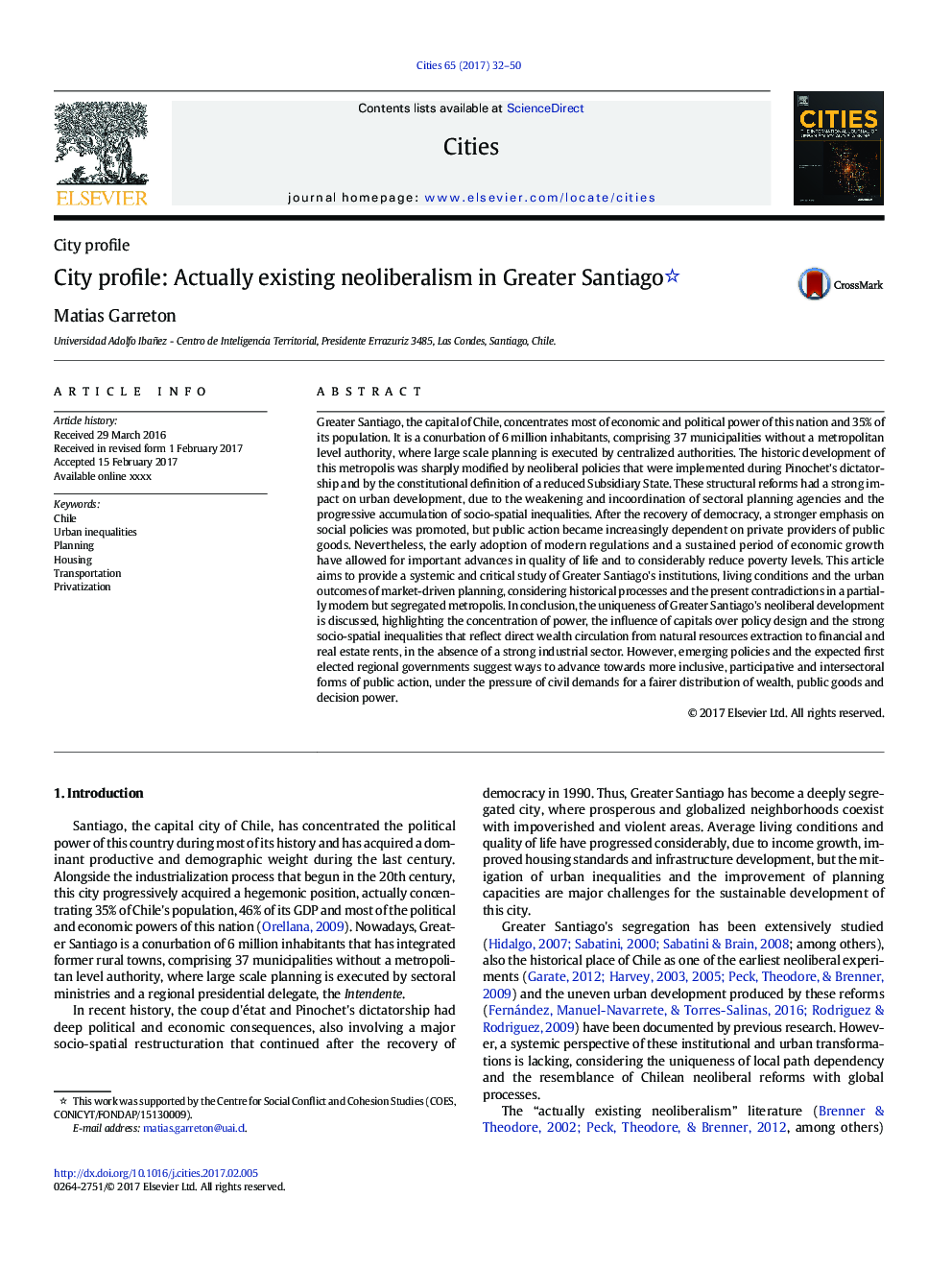| Article ID | Journal | Published Year | Pages | File Type |
|---|---|---|---|---|
| 5108091 | Cities | 2017 | 19 Pages |
Abstract
Greater Santiago, the capital of Chile, concentrates most of economic and political power of this nation and 35% of its population. It is a conurbation of 6 million inhabitants, comprising 37 municipalities without a metropolitan level authority, where large scale planning is executed by centralized authorities. The historic development of this metropolis was sharply modified by neoliberal policies that were implemented during Pinochet's dictatorship and by the constitutional definition of a reduced Subsidiary State. These structural reforms had a strong impact on urban development, due to the weakening and incoordination of sectoral planning agencies and the progressive accumulation of socio-spatial inequalities. After the recovery of democracy, a stronger emphasis on social policies was promoted, but public action became increasingly dependent on private providers of public goods. Nevertheless, the early adoption of modern regulations and a sustained period of economic growth have allowed for important advances in quality of life and to considerably reduce poverty levels. This article aims to provide a systemic and critical study of Greater Santiago's institutions, living conditions and the urban outcomes of market-driven planning, considering historical processes and the present contradictions in a partially modern but segregated metropolis. In conclusion, the uniqueness of Greater Santiago's neoliberal development is discussed, highlighting the concentration of power, the influence of capitals over policy design and the strong socio-spatial inequalities that reflect direct wealth circulation from natural resources extraction to financial and real estate rents, in the absence of a strong industrial sector. However, emerging policies and the expected first elected regional governments suggest ways to advance towards more inclusive, participative and intersectoral forms of public action, under the pressure of civil demands for a fairer distribution of wealth, public goods and decision power.
Related Topics
Social Sciences and Humanities
Business, Management and Accounting
Tourism, Leisure and Hospitality Management
Authors
Matias Garreton,
